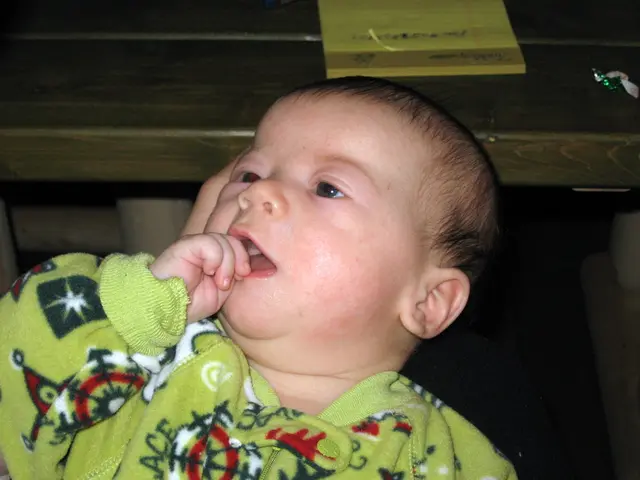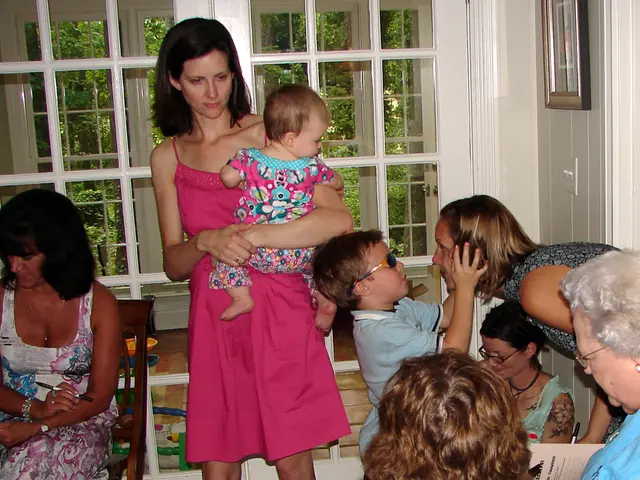Child's Social Development: Empowering Kids with Positivity
Five Essential Parental Roles in Shaping Children's Social Interaction Skills
Learning to interact with others is crucial for a child's development - it's all about understanding their identity, making friends, and handling conflicts effectively. Here's a breakdown of what you need to know:
What You Should Know About Social Development
Social skills are vital for a child's well-being and future success. From the tender toddler stage to handling high school peer pressure, good social skills impact every area of a child's life, including language development, self-esteem, and learning ability.
Why Social Development Matters
Children learn social skills from birth, growing and evolving through their relationships with family, culture, and peers. If social development is neglected, it could potentially lead to academic struggles and emotional challenges.
Parents' Role in Social Development
As parents, you're your child's first and most important teachers. Your everyday interactions with your little one foster their social growth. You model appropriate social behaviors, and they learn to mimic and apply them.
Tips for Promoting Healthy Relationships
- Modeling Positive Interactions: Children learn a lot from what they see. Show them how to be respectful, trustworthy, and good communicators. Role-play different social scenarios together.
- Encouraging Communication: Teach your child to ask questions, express feelings, and listen actively. These skills are the cornerstones of long-lasting friendships.
Don't underestimate the significance of social connections in a child's happiness! Parents with strong, positive relationships are more likely to raise emotionally balanced children. Building a strong network of supportive relationships outside the family is beneficial as well.
Navigating Early Childhood Social Development
Social development in early childhood is vital for a child's growth and overall happiness. As infants, they show emotional and social development through trying to communicate and understanding feelings. Toddlers begin to be independent, show love, and engage in symbolic play.
Insights for Infant and Toddler Milestones
Preschoolers, aged three to five, spend countless hours playing, sharing, and learning about emotions. Early elementary kids, six to eight, develop care for others, a sense of humor, and a sense of responsibility. Building a solid foundation in early childhood social development sets the stage for success later on.
Parenting Tips for Infants and Toddlers
- Teaching Empathy: Talk about feelings and show empathy to help your toddler develop emotional intelligence. Address anxieties and autism as early as possible for better outcomes.
- Encouraging Communication: Help your child learn to listen and express thoughts and feelings more effectively. Praise good communication and teach the importance of body language and eye contact.
Fostering Positive Social Connections
- Encouraging Interests: Support your child's hobbies and allow them to follow their passions. Join them in their extracurricular activities to show your enthusiasm and support.
- Teaching Empathy: Encourage your child to practice active listening, consider different perspectives, and recognize and express their own feelings. Teach them to engage in acts of kindness.
Role-Playing Social Scenarios
Role-playing social situations is a fantastic way to help your child practice social skills. Act out different roles and offer constructive feedback. Keep role-play sessions short and focused, using positive scenarios to avoid teaching bad habits.
Understanding a child's social limits is essential for boosting their self-esteem and building their confidence. Parental support and a nurturing family environment lay the foundation for healthy social growth. Be patient and consistent, and remember that every child develops differently.
[1] National Association for the Education of Young Children (NAEYC)[2] Encyclopedia on Early Childhood Development (2019)[3] American Psychological Association (2019)[4] Centers for Disease Control and Prevention (2019)[5] Zero to Three (2014)
- Emotional intelligence and social skills are important components of a child's overall well-being, impacting various aspects of their life such as language development, self-esteem, and learning ability.
- As parents, promoting equality and respect in social interactions is crucial for fostering positive friendships and a healthy emotional development in children.
- In the realm of education-and-self-development, understanding and addressing social development in early childhood can lead to academic success and emotional balance in the future.
- Science suggests that early childhood social development, including emotional intelligence, is significantly influenced by parenting and family life, making it imperative for parents to model good social behaviors.
- By encouraging healthy communication, interest-based activities, empathy, and acts of kindness, parents can contribute to their child's social growth and help them navigate social situations effectively, leading to well-rounded individuals in the field of health-and-wellness.








